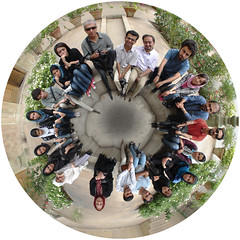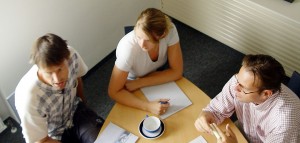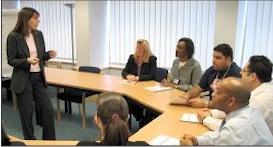 I learnt a lot about making connections when I was giving a presentation to an industry association conference in Osaka, Japan, a while back.
I learnt a lot about making connections when I was giving a presentation to an industry association conference in Osaka, Japan, a while back.
All presentations were being translated simultaneously between English and Japanese.
The Japanese take their responsibilities as hosts of such a major international conference very seriously and their natural formality made it very difficult to ascertain their true response to most presentations.
A single word made the connection
One speaker, however, completely broke through the audience reserve and generated smiles and murmurs of delight with a single word.
The word was “Konnichiwa“.
A simple “Hello” inexpertly pronounced, but in their own language, created a stronger connection than any number of words expertly translated.
Whether we are making a formal presentation, leading a team or serving a customer, the key to building a relationship is making a connection.
There won’t often be a single word which can make that connection but communicating from the other person’s perspective rather than your own will always produce better results in any of your business (or personal) relationships.

 Once you are promoted to a group leadership role you will find yourself responsible for meeting or group facilitation as a regular part of your role.
Once you are promoted to a group leadership role you will find yourself responsible for meeting or group facilitation as a regular part of your role. The problem is that, in this busy world, everyone around the table has a lot of things they personally need to do – and those things aren’t necessarily what you called the meeting for!
The problem is that, in this busy world, everyone around the table has a lot of things they personally need to do – and those things aren’t necessarily what you called the meeting for!





Facilitator quick tips
A competent and experienced meeting facilitator will have the flexibility, skills and ability to guide your group to its ultimate objective via a range of different paths. Encourage and empower your facilitator to modify planned activities in response to the group dynamic on the day.
Using a Facilitator
Consider using an independent external facilitator for a range of important meetings, including:
(Download more ideas for using a facilitator in the Facilitation Fact Sheet)
Categories: Group dynamics, Group facilitation - Tags: 10 quick facilitation tips, effective meetings, facilitation quick activities, facilitation quick tips, facilitator icon, facilitator quick tips, flexibility in meeting facilitator, group facilitation, how do i say i am your facilitator in german?, like thumbs up icon, professional facilitator, quick group dynamic tips, Quick tips for group facilitation, quick tips icon, red thumbs up, simple red square, simple thumbs up, strategic planning facilitation, Very nice facilatator, very nice submit comment, workshop facilitation tips